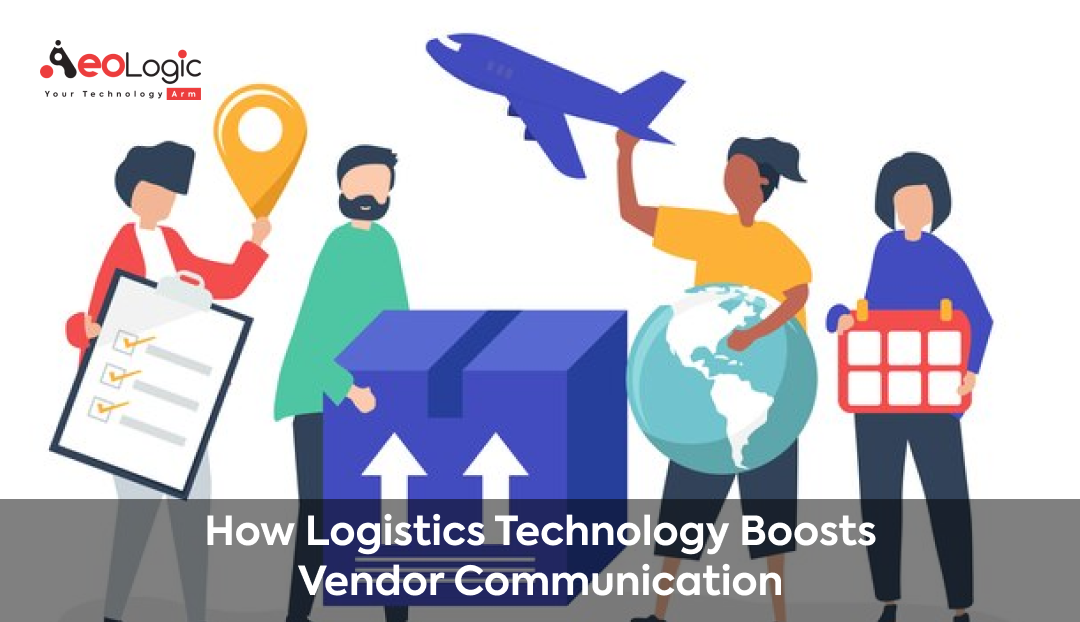The logistics technology assiduity is witnessing a fundamental shift in how associations use digital technologies to enhance their vendor communication, services, processes, and client experiences. The global spending on digital transformation technologies and services are remarkably high — Statista reported it to reach $1.6 trillion USD by 2023 — with Adroit Market Research noting that the market size for digital transformation in logistics and transportation grew from $54.92 Bn to $145.28 Bn between 2018- 2025, with a CAGR of 13 percent. As a matter of fact, 25 percent of overall spending is devoted to digital transformation enterprise in leading associations. This composition seeks to offer information into the substantial benefits achieved through investing in a comprehensive logistics digital transformation strategy as part of a wider plan for businesses in the transportation and logistics sector.
We will also outline how this logistics technology for the industry can help them gain a distinct advantage over challengers operating within dynamic markets alongside quickly shifting client prospects across multiple industries.
Also read: Role of Information Technology in Transportation Industry
Benefits Of Digital Transformation for the Logistics Technology Industry
Logistic companies adopting digital transformations initiatives can anticipate several profitable outcomes, including the following:
Increased Effectiveness
As logistics technology and supply chain advances, the need of the hour is digital transformation in logistics. This includes cloud based software from providers, allowing for centralized tracking and recording of sales. With the help of this tech, logistic companies can give customers with detailed information about progress to guarantee consistent and quality performance. As time progresses, the significance of this unified technology platform will only grow further.
Facilitates Trust Among Stakeholders
The logistics assiduity is taking a big step forward by integrating blockchain enabled digital shipping results within companies. This move builds trust between partners and helps the assiduity realize its intentions of higher technological advancement. Digital transformation in logistics technology has made it possible for clients to track their orders from beginning to end, offering both time and money saving benefits.
When people want to know when they can anticipate their shipment or if any changes have passed, they no longer need to ask; they can head online or admit an automated communication with all the applicable information included. Plus, when all items of the process are kept informed, everyone benefits trust increases, and backups drop.
Enhanced Routing
Investment into state of the art software has resulted in a major shift in the logistics assiduity – advanced routing. Thanks to digital transformation in logistics and supply chains, drivers can fluently identify the most effective routes with minimum navigation and delay risks. However, alternative paths will be suggested to reach the destination without delays, if there are traffic issues for example, as road construction or traffic accidents.
Financially, this technology helps logistic companies save money by allowing vehicles to use shorter routes, drive lesser miles and consume lesser gas.
Also read: The Importance of Traceability in Supply Chain Management
Preventative Fleet Supervision
AI- enabled predictive maintenance in supply chains and logistics is a boon for companies. It allows them to identify vehicle problems and take preventative measures ever. With the early identification of vehicles demanding repairs, teams can quickly respond to minimize time-out, reducing costs significantly. It provides a cost- benefit, and clients know the logistics establishment provides dependable services for their peace of mind.

Intelligence in Transportation
Logistics processes have seen an increase in data since the digitalization of operations. As a result, businesses should consider investing in advanced logical ways for better decision making in the logistics assiduity.
Cognitive Computing and AI software development services are demanded for making informed opinions regarding marketing strategies. Still, they can also give supply chain operation, process optimization, cost effectiveness, bettered client experience, and increased communication from launch to finish.
We Have Proficiency in Transforming Logistics Operations and Supply Chains
Customer Issues and Needs
The large scale manufacturing enterprise requires complex supply chain and logistics results to stay competitive in an ever changing geography. Crucial issues included decentralized operations demanding better visibility across the supply chain, data errors related to item bills and sales orders, and inefficient processes caused by unequal manual tasks. As a result, the company’s functional effectiveness suffered.
The customer will sought a comprehensive supply chain logistics software development solution to address these challenges. Automating their processes, optimizing productivity and cost- effectiveness, streamlining the data inflow between different systems, and scaling consequently.
Our Solution
Our team will dive deep into this design by taking the time to understand the customer’s requirements completely. We will work strictly – with developers, designers, and project leaders. To ideate and construct a supply chain logistics software solution that will best suit their business.
Also read: The Role of IT in Supply Chain Management
We Can Help You Transform Your Logistics Operations
Digitization is a game changer in logistics services, as ultramodern technologies allow for increased effectiveness and cost savings, and at Aeologic Technologies, we have learned digital transformation. With times of experience structure cutting edge digital products. We do the same for the supply chain and logistic assiduity being the top- rated logistics software development company.






